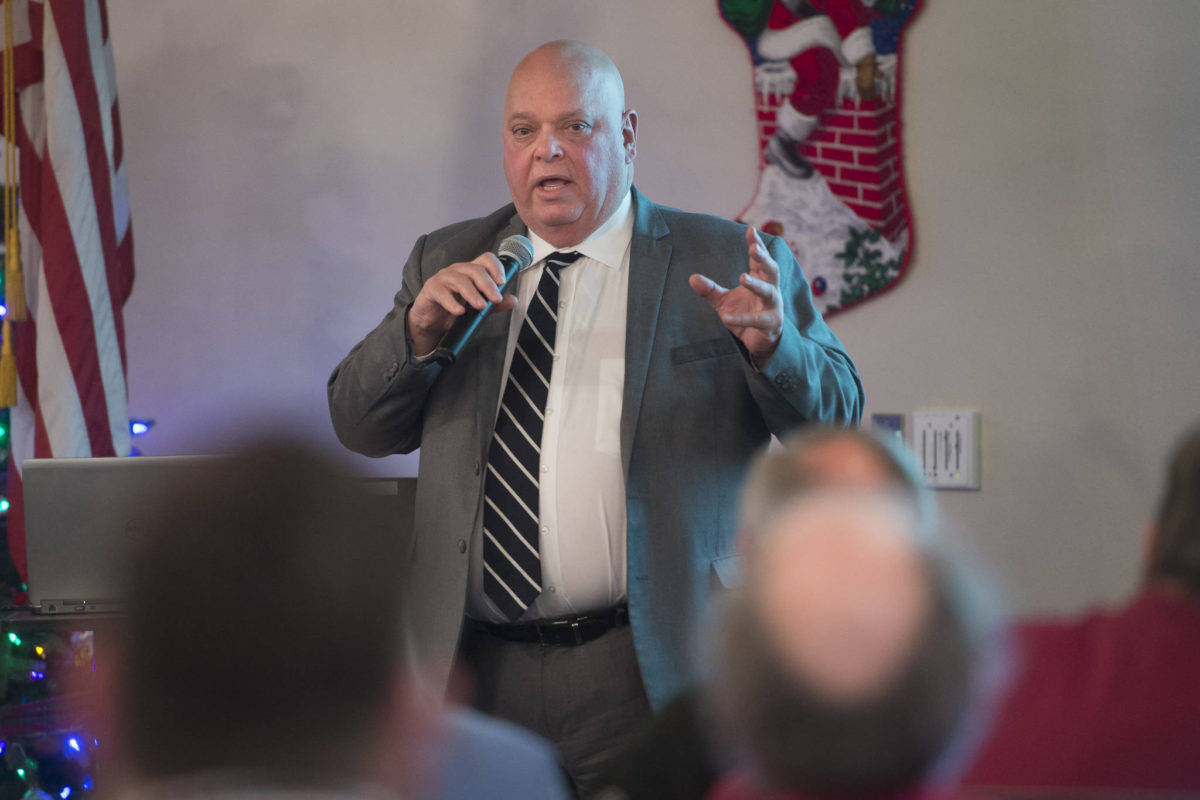Goldbelt Inc. was selected as one of eight companies to perform work with the U.S. Army under a contract that could be worth as much as $6.1 billion over 10 years, the for-profit Alaska Native urban corporation headquartered in Juneau announced Thursday.
Goldbelt Glacier Health Services, a subsidiary of Goldbelt Inc., was selected for the Human Resources Solutions-Personnel Lifecycle Support contract to provide human resources services to the Army, and other Goldbelt companies will work as subcontractors.
Goldbelt Inc. CEO and President Chuck Wimberly said in a Thursday interview it’s likely the contract reaches its ceiling for value and length.
“The government and the Army have the opportunity to cancel the contract on a 30-day notice,” Wimberly said. “The likelihood of the government canceling that is fairly low. We live with that option to cancel without cause. At the end of the day, I think this is an effort by the army to streamline the services they need for human resources.”
[Goldbelt confident about federal contract]
The human resources services include: access card issuance, benefit paperwork processing, hiring civilian support staff and more.
The new contract is not affected by the ongoing government shutdown.
“The Department of Defense budget has been approved, and the partial shutdown doesn’t include the Army,” Wimberly said.
Wimberly said it took more than two years of work to earn the contract that is expected to mean $150 million in revenue growth for Goldbelt annually for the next 10 years.
That figure is based on projections of work flow inside of the contract, said McHugh Pierre, Vice President of Alaska operations for Goldbelt Inc.
Wimberly said it was known Goldbelt was awarded the contract a week ago Monday, but the news was officially announced in a Thursday press release.
“It was 26 months from the first request for proposal to award,” Wimberly said. “In that 26 month period, there was a down select about a year in. It was down selected from 35 to eight companies. From that point on, there were 14 amendments to this contract. We had to revamp our proposal 14 different times. The end proposal ended up being about 500 pages long. It was a lot of anxiety and a lot of sleepless nights on our team’s effort. It’s great that we were able to land this.”
An additional 400 employees are expected to be added as a result of the contract, Wimberly said. Also, some of those employees may already be working in human resources for the Army and will be hired by Goldbelt.
None of the employees are likely to work in Juneau, but some of the employees may come from Juneau. Goldbelt has about 3,700 shareholders.
“We do have a shareholder hire policy, when a shareholder meets the qualifications for the job, they have the right of first refusal, but they would have to move to the location of the job,” Wimberly said.
Goldbelt also recruits and advertises positions to shareholders, Wimberly said.
While hundreds of new jobs may not be created in Juneau, Wimberly said the impact of the contract will be felt locally.
“It will mean profits to Goldbelt Inc. to allow Goldbelt Inc. to return dividends to its shareholders and invest in the community,” Wimberly said. “I think the real work now begins. There was a lot of work getting to this point, but then hiring 400 people and making sure we’re providing the services over and above what the Army expects will be a challenge. We’re ready to stand tall and meet the challenge.”
[Corporation shows financial rebound]
The news continues a trend of financial growth for Goldbelt.
As of earlier this year, Goldbelt had more than doubled in size in just six years: Its 2011 annual report showed revenues of $135.2 million; Goldbelt grew to a $229 million corporation in July. That revenue total was three-quarters the size of Sealaska Corp., the regional Alaska Native corporation for Southeast Alaska, which had $293 million in revenue last year.
Pierre said an additional $150 million of revenue for Goldbelt would significantly change those figures.
“When you compare us to other Native corporations, we don’t receive any revenue sharing money,” Pierre said Thursday. “We have what we make from our businesses, and that’s revenue through our businesses every year.”
According to the July report, 96 percent of Goldbelt’s revenue came from government contracting; the remaining 4 percent came from real estate and tourism businesses such as the iconic Mount Roberts Tramway.
Pierre said the new contract means government contracting revenue will climb closer to 100 percent.
• Contact reporter Ben Hohenstatt at 523-2243 or bhohenstatt@juneauempire.com.

